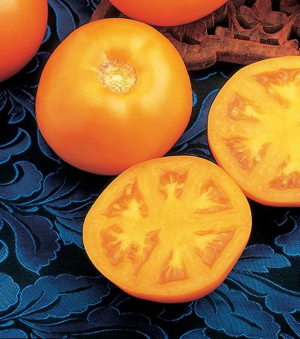According to this article in the Harare Herald, the Kellogg Foundation will be supporting research by University of Zimbabwe scientists into “wild and famine plant foods, their preparation and preservation (and) nutrient analysis … to enhance livelihood security.”
Core blimey!
I spent the last few days in Portesham, Dorset (thanks, Lorna and Geoff!), which made it all the more weird to come across this article reprinted in a newspaper in Dubai, where I had to transit for a few hours on the way out there. But it does show that you can still discover (or re-discover) new things even in such a well-researched crop as apples in the UK. Of course, for every upbeat story, there’s a depressing one.
Brazil and US work on exchange of genetic resources
Brazilian and US scientists are working together on basic research into germplasm storage, according to an article from the US Department of Agriculture (USDA). The research is part of a scientific collaboration between Brazil’s EMBRAPA and the US Agricultural Research Service which has been in place since 1998. Genebank management is a relatively recent topic for the collaboration, which is extending to animal genetic resources. A Brazilian programmer is working with ARS to develop the animal genetic resources component of GRIN.
The two groups of scientists are also working on the physical exchange of material between their two countries. Let’s hope they’ve got their access and benefit sharing details all worked out.
Heirlooms are better for you
 Tomatoes come in many more colours than red and one of them — the tangerine tomato — has proved to be a much better source of important nutrients than its red cousins. Tangerine tomatoes are richer in the cis form of the chemical lycopene, while red tomatoes contain the trans form of the chemical. Researchers fed human volunteers tomato sauce for breakfast. Those who ate tangerine tomatoes absorbed almost three times more lycopene than those fed red tomatoes, even though those red varieties were known to be especially high in lycopene.
Tomatoes come in many more colours than red and one of them — the tangerine tomato — has proved to be a much better source of important nutrients than its red cousins. Tangerine tomatoes are richer in the cis form of the chemical lycopene, while red tomatoes contain the trans form of the chemical. Researchers fed human volunteers tomato sauce for breakfast. Those who ate tangerine tomatoes absorbed almost three times more lycopene than those fed red tomatoes, even though those red varieties were known to be especially high in lycopene.
Lycopene is rapidly finding favour as an antioxidant that can help to protect against various forms of disease. While researchers scramble to produce high-lycopene fruits and vegetables, Tangerine is an heirloom tomato that has been around for decades. I’m sure nobody grew it for its cis-lycopene; they just liked the look and taste. But that’s the thing about agricultural biodiversity; you never know what you’ll find when you go looking.
Article: Carotenoid Absorption in Humans Consuming Tomato Sauces Obtained from Tangerine or High-beta Carotene Varieties of Tomatoes
Photo from the W. Atlee Burpee & Co.
A hymn to horticulture
A web site in Pakistan carries an extended article in praise of horticulture for poverty alleviation. While one might quibble with some of the ideas in the article (is growing hydroponically for export really a good idea for poor marginal farmers?) one cannot argue with the general thrust of the piece: that growing fruit and vegetables can enrich peoples’ lives in more ways than money. Maybe the authors already know about the Global Horticulture Initiative, which seeks to promote horticulture around the world. If not, we’re pleased to effect an introduction. Just let us know what, if anything, comes of it.